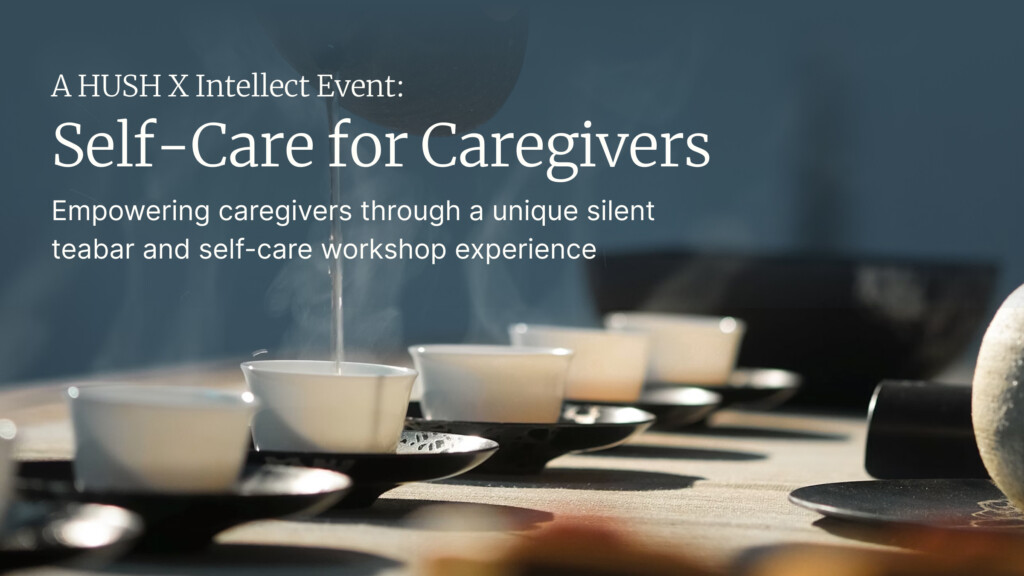Employee resilience isn’t exactly top-of-mind when it comes to workforce development. Organisations commonly emphasise strength, tenacity, and grit, while resilience takes a backseat. But what happens when we start leveraging resilience—moreso nimble resilience—as an approach to wellbeing?
The answer, according to O.C. Tanner Institute’s 2024 Global Culture Report, is proactive change. Their research found that employees are 11 times more likely to report a positive experience with change when organisations take a people-centered approach and build employee resilience.
In our recent webinar, Intellect Head of Clinical Operations, Salman Haider, and Russell Flint, Director of Business Development APAC of O.C. Tanner, shared strategies for managers to build their team members up.
Redefining resilience
Salman defined resilience as the ability to bounce back and how quickly one can do so in the face of adversity. This is the product of a strengths-, growth-, and future-oriented mindset. In the area of personal wellbeing, Intellect measures resilience based on an individual’s physical health, sleep health, and stress level.
Meanwhile, O.C. Tanner’s study of over 40,000 employees and company leaders—35% of whom are based in Asia Pacific—reveals a slightly different understanding. Apparently, employees associate resilience with strength, tenacity, and grit.
Though these concepts overlap, traditional ideals of resilience may be outdated as they rely too heavily on an employee’s individual capacity and too little on organisational cultures. Managers are in a unique position to bridge the gap and strike a balance, starting with O.C. Tanner’s strategies below.

How to build employee resilience as a manager
1. Embody the qualities of nimble resilience
Building nimble resilience, Russell emphasised, is the collective responsibility of individuals, leaders, and the organisation. At every level, the following qualities apply:
Adaptability: The ability to anticipate change, adjust, and innovate to reach goals.
Proactiveness: The initiative to seek out areas for improvement and ways to get there.
Perseverance: The perception of setbacks as opportunities for growth rather than a crisis in the way.
O.C. Tanner found the impact of nimble resilience to be tremendous. Employees felt a strong sense of fulfilment, the quality of their work quadrupled, and their desire to stay on in the organisation doubled.
2. Nurture a culture of speaking up
In order for employees to embody the qualities of nimble resilience, managers must ensure that they feel safe enough to speak up. Ideally, an organization would shift away from an autocratic style of leadership and amplify the voices of their employees. However, Rome wasn’t built in a day, and reaching that point begins with the everyday interactions between managers and team members.
Russell recommended:
Challenging in the “right” language
Often, employees remain quiet not because they lack ideas or opinions, but because aren’t confident in expressing themselves constructively and without reprisal. Fearing being labeled as troublemakers, many employees choose to ignore their concerns or resort to platforms like Glassdoor to voice them.
With adequate training, managers can empower team members to challenge ideas or decisions respectfully and appropriately. When they do, it helps to acknowledge that it wasn’t easy. This can be as simple as telling them you’re proud of them for speaking up, said Russell.
Reinventing the monthly check-in
Whether they’re one-on-ones or team huddles, Russell suggests allocating time on the agenda for team members to share how they’re feeling. This doesn’t have to be solemn; you can make it casual and fun. Using the two-word check-in by Dr. Brené Brown, for instance, managers may invite team members to describe their daily challenges using just two words. It’s an excellent way to bring the team closer while collecting informal feedback on everyone’s wellbeing.
3. Recognise good work in tough times
Studies show that informal moments of recognition, like receiving shoutouts in the company chat, can raise feelings of pride and belonging by up to 35%. This number goes up to 130% for formal moments of recognition, like being awarded a certificate for good performance.

Russell shared an anecdote about Wayne Tippet, Executive Claims Manager of Insurance Australia Group (IAG), who helped victims of natural disasters with their insurance claims. In the wake of the earthquake that shook New Zealand in 2023, Wayne’s team received 50,000 claims. Compared to 2022, their workload had quintupled, yet they remained steadfast in assisting the vulnerable.
Amidst the calamity, Wayne recognised his team’s efforts by sending an e-card to his team that said:
“You’re a superstar! …Your willingness to own the challenge and do everything it takes to provide help and support to relieve some of the stress our customers are facing is amazing. It’s moments like these where we showcase that we’re more than just insurance. We are lucky to have you and you’re a valued part of the team.”
To Wayne’s surprise, his inbox was soon flooded with messages of gratitude. Some felt seen and heard by his gesture, saying it’s “much appreciated that (they) have been noticed.” Others reciprocated, saying “a lot of what (they) do is because of the leadership.”
Clearly, words of affirmation are a two-way street. They don’t just validate the work of the team, but also the leadership of their managers. Wayne summed it up best,
“It’s such a powerful thing to do something so simple and easy, which is just to say thanks.”
Intellect’s approach to employee resilience
Resilience isn’t just an end goal; it’s an approach to employee wellbeing in and of itself. Crucially, HR managers have to contextualise this within their organisation’s values, culture, and ecosystem. Salman shared a 3-step framework for HR managers:
1. Evaluate
Intellect Dimensions (also known as Personal Insights on our app) is an evidence-based tool for organisations to get their workforce’s “vitals”—including resilience—while protecting their anonymity. This proprietary 26-item measurement framework has undergone rigorous validation through Intellect’s clinical study, encompassing a sample size of 1001 working adults in Singapore.
2. Personalise
No two workforces are the same, but having empirical data at your fingertips ensures that your programs are tailored to the needs of your workforce. For example, if your employees are reporting poor sleep health (one of the three components PIQ uses to measure resilience), it may be time to introduce a webinar on sleep hygiene or review work-life balance policies.

3. Monitor and review
After implementation, you can monitor your employees’ resilience scores on our nifty HR dashboard. This allows employers to identify trends (think times of the year where employee wellbeing tends to dip) and adjust their strategies accordingly.
Across Singapore and Hong Kong, employees who used Intellect’s services reported an increase in next-day resilience. Engagement over 8 consecutive weeks also improved their physical health and stress levels.
Learn more about how we achieved that here.





